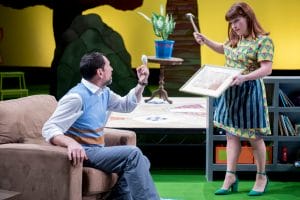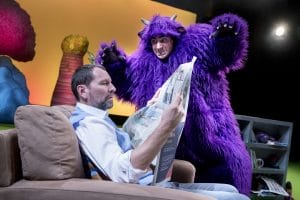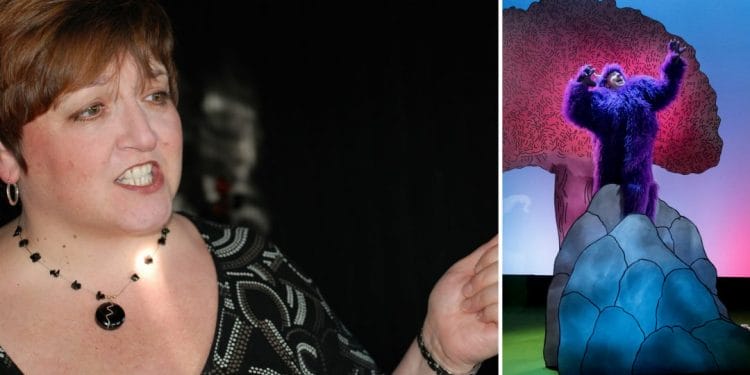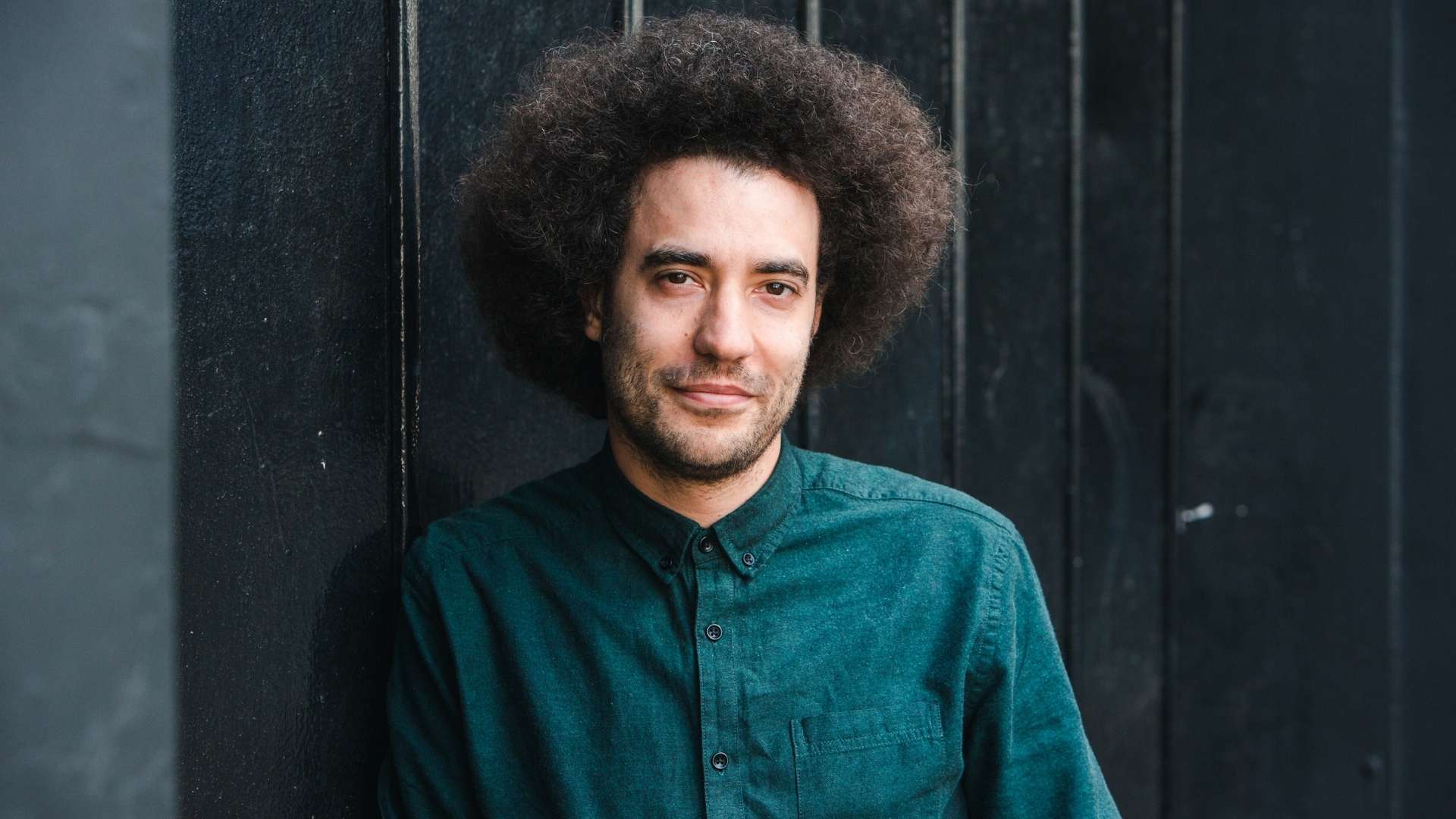Sarah Argent returns to the Unicorn to direct actor Guy Rhys as Bernard in David McKee’s classic picture book Not Now, Bernard – the story of a little boy who is constantly ignored by his very busy parents.
In this brand new Unicorn production, the director behind critically acclaimed shows Baby Show and Seesaw will bring the colourful pages of David McKee’s much-loved picture book to life in this imaginative and engaging production for the younger audiences.
We caught up with Sarah Argent to find out more.
Not Now, Bernard is at The Unicorn Theatre 27th May – 1st July 2018. This production is suitable for ages 3 to 6 years.
You’re directing Not Now, Bernard at the Unicorn, what can you tell us about it?
This production of Not Now, Bernard features all the characters from David McKee’s much-loved book – Bernard, his mother, his father, and – of course – the monster. It features many images from the book including the furniture, the carpets, the plant, the toys on the shelves (even Elmer) and every word of the text. In order to turn this beautifully-short book into a 40-minute play, we have expanded some of the images so, for example, the monster flicks through the channels while watching the television and we see which programmes he likes, and we include a scene building up to Bernard’s father hammering his finger instead of a nail and Bernard’s mother working out where in the house to put her precious plant. We also discover the monster’s taste in music!
Why does David McKee’s classic picture book translate so well to the stage?
The visual imagery in David’s book creates such wonderful stage pictures. We examined every picture in minute detail – where are Bernard’s eyes looking? how is he standing? – all of these are things that, on stage, give an audience clues about a character even when he or she isn’t speaking – and they are all so clear in David’s illustrations. It is also a challenge in that the book is so short but so perfect. As one dad said in the Unicorn yesterday, “How are they going to make a 40-minute play from a 4 minute story?”. We hope we’ve succeeded!
What made you want to work on this production?
I was a huge fan of David McKee’s ‘Mr Benn” as a child and I thoroughly enjoyed reading “Not Now, Bernard” and “Elmer” to my nieces and nephew when they were small.
The visual world of the book is exquisite and I hope our design reflects that, but the story also allows scope for humour and pathos and a little bit of fear. I believe that the best theatre for children (like all the best theatre!) touches upon and explores the major human emotions. It also has a level of ambiguity and space for children (and their grown-ups) to explore their own feelings depending on their level of development and their life experiences. “Not Now, Bernard” has all of those things, so I was keen to see how we could bring this story to life, transferring it from the page to the stage by making Bernard and his world three-dimensional.

I always enjoy working at the Unicorn. Every member of staff and the freelance actors and creative team members are so committed to giving children and young people and their adults a high-quality theatre experience from the moment they open the brochure or look at the website through to booking their tickets to arriving at the building to leaving again having seen the show and played in the foyer.
The book was written in 1980, do you think modern parents (or children) will still recognise the issues explored in Not Now, Bernard?
Absolutely! Although the book was written in the days before we became wedded and welded to our phones and tablets, I think there is even more of a tendency for parents to become distracted from paying attention to their children. In our busy adult lives we can think, “Oh marvellous – I’ve got some time to myself to catch up on x or y” and we can be distracted from the needs of our children. On the other hand, sometimes children have to recognise that their parents can’t always give them attention as soon as they require it as adult life places lots of demands on our time. It’s all about balance and communication. We spent much of rehearsals discussing these issues and sharing our own experiences as parents, step-parents, aunts and uncles, and children.
Why do you enjoy making theatre for young people?
I specialise in creating theatre for very young children – the majority of my recent work has been for audiences between 6 months and 6 years in various very specific age-brackets (6-18 months, 2-5 years, etc). It is an honour and a privilege to make work which is often a child’s first experience of theatre and I try to ensure that every element combines to make them feel safe and relaxed during their visit while not shying away from exploring the full range of emotions within the productions themselves.
Watching an audience of children sitting in open-mouthed, wide-eyed wonder or hearing them giggling from their bellies are some of the most joyful experiences – I love my job! I adore hearing their comments about the characters on stage (with work for this age-group there is often almost a running commentary during the show), and I particularly enjoy hearing a small audience member giving advice to a character. Small children are never a passive audience – you are always able to gauge from their body-language and facial expressions (as well as their comments) how they are responding to a performance. It’s a joy to watch.
Are there any challenges to making theatre specifically for young people?

Making theatre for the very young has a range of challenges: how to explore truthful emotions without upsetting them; how to keep their attention; how to ensure the story is told with clarity without being patronising, how to engage both the children and the parents, teachers, grandparents etc who will accompany them to see the show. While the making of the work in the rehearsal room is informed by many years of experience, it is often only once we start putting a piece of work in front of our preview audiences that we really discover exactly how the children will respond. The Unicorn recognises what an important part of the process that is and allows time for us to tweak and change a show in response to this very important feedback.

















